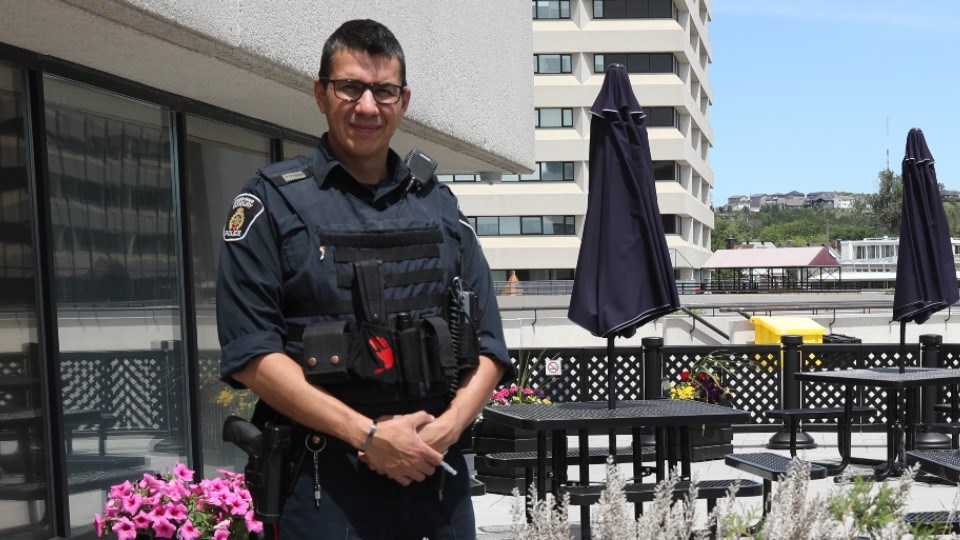When Det.-Const. Darrell Rivers of Wiikwemkoong Unceded Territory, joined the Greater Sudbury Police Services in March of this year, he knew he wanted to focus his work as an Indigenous liaison officer on youth and youth services.
“I have a passion to help the kids in the community and I wanted something that would be useful for them to help build their confidence,”said Rivers. “A lot of these kids in transition and in care are in an unfortunate situation, through no fault of their own.”
Rivers contacted local Indigenous agencies that help youth in care and in transition and found a great reaction to his idea. He partnered with Kina Gbezhgomi Child & Family Services, Nogdawindamin Family & Community Services and Niijaansinaanik Child and Family Services to create a pilot program called Mooz Akinonmaaget Maa Aki (Moose Who Teaches Land Survival).
In it, six youth from Sudbury will go on a moose hunt with Indigenous officers and guides, as well as non-Indigenous officers. Though the youth participants and non-Indigenous officers will not be taking part in the actual hunt due to Ministry of Natural Resources regulations, the Indigenous officers will be showing the Indigenous youth how to call and ‘rub’ for moose, as well as how to field dress any successful harvest.
Any proceeds from the hunt will be donated to the Shkagamik-Kwe Health Centre’s Indigenous Food Bank.
Rivers said not only will the youth have a chance to develop new skills, but also, their confidence. He also wants an opportunity to offer non-Indigenous officers a new tool for their work.
“The training that I would like to incorporate would be along the lines of awareness, to be another tool for our frontline officers to use,” said Rivers.
He said works to ensure that the first interaction youth have with police officers is positive, rather than traumatic.
“I wanted to rebuild that relationship in a positive way to show the kids you know, that sort of different interactions to be had, it can look very different,” said Rivers.
He said often children can’t understand what is happening when police come to their home.
“These children don't know what's going on, all they see is somebody coming into the house, their caregivers are upset. The police have to do certain things required by law, but we can try to mitigate any of their trauma. Unfortunately, there's certain situations where that can't always happen, but at least we can try.”
Though the youth that have been selected for this program all identify as male, the program was and will be open to all genders, including non-binary and two-spirit individuals.
In addition to teaching firearm safety as well as sustainable-hunting practices, the youth and non-Indigenous officers will receive cultural teaching as well. Rivers said it is not due to the importance of these lessons in living a good life, but because many of these young people have been removed from their opportunities to learn these sacred teachings.
“Many don't have access to a program like this, or any traditional teachings,” said Rivers. “So we are incorporating the Seven Grandfather teachings into this program, those that are more focused around the hunt and providing for families and traditional male roles. But if we did have female participants, they would absolutely incorporate some additional teachings for them as well.”
There will also be safe-firearm handling and storage taught, and though the youth cannot obtain their hunting or firearms licence yet, having the training will make the path more accessible for those looking to continue the tradition.
Though the program is full for now, Rivers hopes that the success of it will lead to more opportunities, including with local school boards who have already shown an interest in the pilot.
“I'm looking forward to the opportunity to speak with all agencies,” said River. “Not just the child and Family Services, but to partner anywhere that we can fit.”
